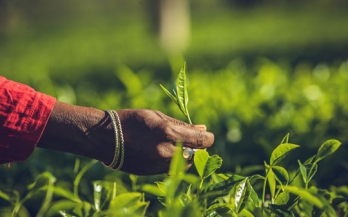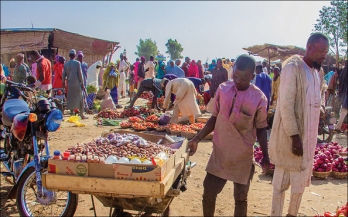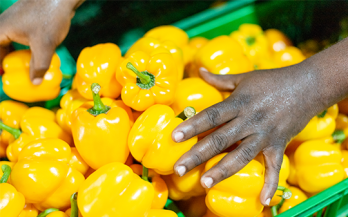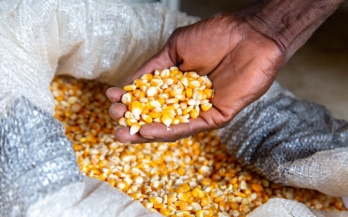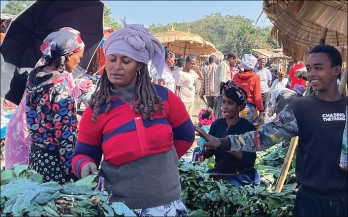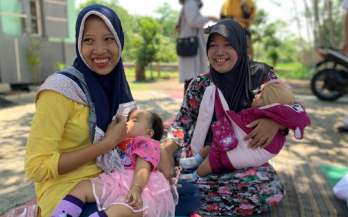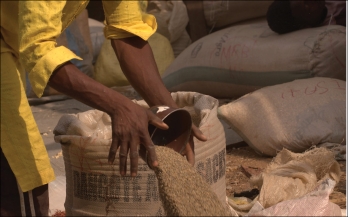Le Code de conduite est un engagement solennel et de bonne foi que chacun de nous prend en faveur de ces valeurs au sein de la GAIN, à tout moment, quelle que soit la relation, que nos actions soient visibles ou non par les autres.
The Code of Conduct is a solemn and good faith commitment each of us makes to uphold these values at GAIN, at all times, no matter the relationship, and whether or not our actions are visible to others.
GAIN’s Environment Screening Tool represents a key step towards systematically incorporating environmental considerations into GAIN’s programmes. It is designed to enable a rapid self-assessment, which identifies environment-related risk factors, prompts mitigation actions, and encourages teams to explore opportunities for environment-nutrition win-wins.
In this paper, EatSafe examines the process of “making a market” through a case study of vendors and consumers, using in-depth interviews, in Birnin Kebbi, Nigeria. Results demonstrate that market transactions are influenced by a complex interaction of vendors’ norms on competition and collaboration, consumers’ needs for credit amid unpredictable prices and restrictive gender norms, and a “moral economy” that appears to guide market actors’ behavior.
The 2021 UN Food System Summit led to strategic pathways for food system transformation in countries, supported by an Ecosystem of Support (EoS).
This analysis evaluates transformation progress, suggests principles for effective EoS functioning, and emphasizes flexibility while respecting national leadership and promoting collaboration, inclusivity, and transparency and decision-making in advancing food system goals.
Lower-income populations in low- and middle-income countries (LMICs) often face challenges accessing affordable, desirable, safe, and nutritious food, contributing to poor diet quality and malnutrition.
Lower-income populations in low- and middle-income countries (LMICs) often face challenges accessing affordable, desirable, safe, and nutritious food, contributing to poor diet quality and malnutrition. As the main source of food for the majority of this population, private-sector firms have the potential to play a key role in alleviating this – and if they can do profitably, could help their bottom line in the process.
To increase consumer demand for improved food safety, EatSafe is testing three interventions that seek to change consumers and vendor behaviors in a traditional food market in Hawassa, Ethiopia.
The objective of this paper is to describe the initial scaling-up phase of the 'Baduta' programme (Baduta 2), which aimed to support national stunting-reduction efforts in Indonesia through emotional demonstrations (‘emo demos’), reflecting on the challenges faced and ensuing lessons learned, following the promising results of the 2017 evaluation of the programme.
EatSafe interviewed producers, processors, transporters, storage providers, and wholesalers of six food commodities to understand perceptions and actions related to food safety hazards across Nigerian food supply chains.



